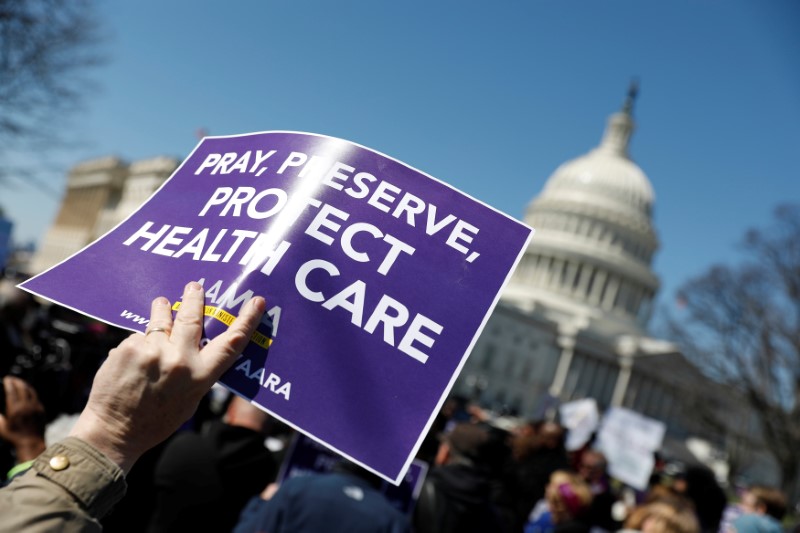By Megan Davies and Rodrigo Campos
NEW YORK (Reuters) - Hurdles to getting a key U.S. healthcare bill approved could precipitate a correction for stocks, said Byron Wien, veteran investor and vice chairman of Blackstone (NYSE:BX) Advisory Partners.
Equities on Tuesday posted their biggest one-day drop since the Nov. 8 presidential election on concerns that President Donald Trump would struggle to get his healthcare reform passed, leading to problems getting the rest of his agenda through, including tax reform.
"The fact that they are having trouble with (healthcare) casts a shadow over the tax cut and the tax cut was supposed to be the principal fiscal stimulus for the improvement in real GDP," Wien told Reuters on Wednesday.
"Without that improvement in GDP, earnings aren’t going to be there and the market is vulnerable.”
Trump had campaigned on a promise of 4 percent economic growth. Gross domestic product growth for 2016 fell to 1.6 percent from 2.6 percent in 2015.
"His objective was from going from 2 percent growth to 4 percent," Wien said in an earlier interview on Monday. "Now the market is wondering whether 3 percent is even attainable in 2017. Maybe in 2018, but maybe not this year."
He said the market was "overbought and valuations are extended so it can correct" but stressed he predicted "a correction, not a bear market."
Traditionally, a correction is defined as a 10 percent drop from a recent high. A decrease of 20 percent or more is considered a bear market.
Investors are currently paying more than $18 per every $1 in expected earnings on the S&P 500 over the next 12 months, near the most expensive since 2004, according to Thomson Reuters Datastream data.
Wien cautioned of the risk of boosting growth by fiscal stimulus and said "growth is limited by population expansion and productivity." He said productivity hasn't improved this millennium because there hasn't been a major breakthrough in innovation.
"If you don't get increases in productivity, earnings will be disappointing and the standard of living will rise very slowly."
Productivity and population have grown slightly under 1 percent each over the last three years. Wien said that the natural growth rate of the United States is around 2 percent or less which is "OK but it's not what the administration promised."

"If it's going to be 3 percent or more it's only going to happen because of fiscal stimulus. The likelihood of that being revenue neutral is very small, therefore the budget deficit will increase, ... rates will trend higher and inflation will trend higher and there are negatives associated with both."